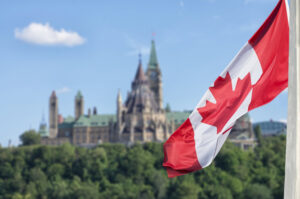History was made on Jan. 1, when California became the sixth state to legalize recreational cannabis.
Though Proposition 64 allowed cities to begin adult-use recreational marijuana sales on New Year’s Day, most municipalities weren’t ready. About 60 cannabis retailers commenced recreational sales on time, with enthusiastic adults lining up to support cannabis legalization with their wallets.
FOLLOW US ON FACEBOOK & INSTAGRAM
State Issues Recreational Sales Licenses to Some, But Not All Canna-Businesses
By Dec. 31, 404 temporary business licenses had been issued by California’s Bureau of Cannabis Control. They included 94 medical-use and 140 adult-use retail licenses, 21 licenses granted to delivery companies and 12 to testing labs.
Another 140 licenses were awarded to microbusinesses, distribution and transport services, with the state anticipating many more to be issued in the near future.
Legal Adult-Use Marijuana Updates by Region
**Southern California **
The City of Angels wasn’t so kind to cannabis consumers, with recreational sales limited to shops in the Santa Ana area. “We approved what I think is a model ordinance that’s going to be used in other communities in the future, and we’re pretty excited about it," Santa Ana City Councilman Jose Solorio told ABC News. Another three Hollywood-area dispensaries were scheduled to begin sales on Jan. 2.
Los Angeles area residents should see more recreational storefronts opening soon as the city begins issuing local permits this month. But before they can begin recreational sales, those businesses must also receive state-issued adult retail licenses, and that’s a waiting game.
In San Diego, over a dozen cannabis retailers greeted hundreds of customers, grateful the city took a chance and welcomed cannabis businesses and the resulting revenue they’ll bring to their community.
Are you in Southern California and worried about receiving your medicine? Medical marijuana patients in the area should be able to continue accessing medicine legally at their local dispensary without interruption.
RELATED: WHY YOU’LL STILL NEED A MEDICAL RECOMMENDATION AFTER JAN. 1
**Central California/Bay Area **
New Year’s Day brought out cannabis enthusiasts to a limited number of cities in the Bay Area. The city of San Francisco anticipates rolling out recreational sales by Jan. 6. But across the Bay in Oakland and to the south in Santa Cruz, those cities were ready for legalization.
Cannabis activists and industry professionals Mikki Norris and her husband Chris Conrad took the symbolic step as the first recreational customers at California’s longest-running dispensary, Berkeley Patients Group.
“I feel like it’s a huge accomplishment,” said Chris. “Marijuana should never have been illegal in the first place, so to have gotten to this moment feels like a huge advance.” Chris, considered to be the foremost cannabis expert witnesses in the country, was a strong supporter of Proposition 64. Also on hand for the opening were State Senator Nancy Skinner and Berkeley Mayor Jesse Arreguín, who called legalization “a long time coming.”
At KindPeople’s in Santa Cruz, Craig Reinarman, a UC Santa Cruz professor emeritus of sociology and legal studies, made the first recreational sale.
“Cannabis prohibition was conceived in fraud, spread by racist fears full of misinformation and myths. And now the law is finally catching up with the culture and people,” said Craig, 69, to hundreds of people gathered at the dispensary.
In Oakland at Harborside, arguably the largest and most recognized dispensary in the country, the atmosphere was celebratory.“I recognize a lot of my neighbors in line making the purchase legally,” smiled Oakland City Councilmember Noel Gallo.
Emerald Triangle
In the heart of the Emerald Triangle, only a handful of dispensaries were open for recreational sales. Four dispensaries served customers in Mendocino County. Visitors to Kure Wellness in Ukiah were treated to breakfast, t-shirts and calendars.
Mendocino County’s first recreational sales customer, Jeremy Lopreski, awakened at 4:30 a.m. to make sure he was the first person in line at Kure Wellness.
“Even though it’s great we’re recreational, Prop 64 lowered the dosages on edibles, which is what I depend on for pain issues,” said Jeremy, who has severe spinal stenosis. Like many patients, he’s stocking up on Kure’s remaining inventory of higher-dosage edibles. Once they’re gone, new regulations limit edibles to a maximum tetrahydrocannabinol (THC) content of 100 milligrams.
Meanwhile, staff at Revolution Emporium are still celebrating their latest win. Their award-winning candy company, Higher Confections, placed second in the edibles category at the 2017 Emerald Cup.
“If Mendocino County makes a concerted effort, we’ll be the new Napa Valley. If we can grow and provide craft cannabis, people will come. We don’t have long lines like the Bay Area,” says Revolution Emporium partner Ian Hesz.
“We’re not just a dispensary. We’re a destination,” said Kure Wellness COO Kyle Greenhalgh, who adds they’re formulating “wine and weed” tours, working in concert with local businesses.
Here’s Why You Should Still Keep a Valid Medical Marijuana Card
Even though recreational cannabis is now legal, there are many reasons to keep your medical marijuana recommendation. Here are a few:
-
If you live in Fresno, Bakersfield or Riverside, all recreational marijuana sales are prohibited. Only medical marijuana patients will have access to legal cannabis in these areas.
-
Many municipalities didn’t meet the Jan. 1 deadline for recreational cannabis sales. They say they’ll be rolling out recreational sales soon, but in some places it’s hard to tell when that will actually be. Until then, many dispensaries are continuing to serve medical marijuana patients only.
-
Marijuana edibles and tincture dosages have changed under Proposition 64. Only medical marijuana patients are allowed to purchase a dispensary’s remaining 2017 edibles stock while it lasts. This is especially important if you depend on a high-potency edible to treat a health condition.
-
Proposition 64 only allows for adults 21 and over to purchase recreational marijuana, but you can obtain a medical marijuana card if you’re 18.
-
With a medical marijuana card, you’re able to consult with a doctor who’s familiar with the plant and how it interacts in the body. A budtender at your local dispensary may be knowledgeable about marijuana, but they may not know anything about your particular medical condition. They could give you some sound advice, but they don’t have any medical training.
-
Because of new taxes that are a part of Proposition 64, medical cannabis costs less than recreational marijuana. You can also apply for a Medical Marijuana Identification Card (MMIC) through the state, which will further lower cost—but only if you have a medical marijuana recommendation.
Photo credit: KindPeoples Collective
If you’re new to cannabis and want to learn more, take a look at our Cannabis 101 post. HelloMD can help you get your medical marijuana recommendation; it’s easy, private and 100% online.






